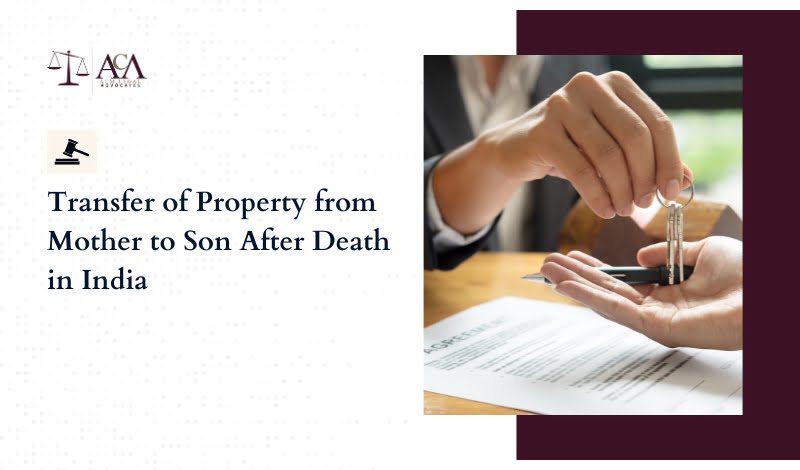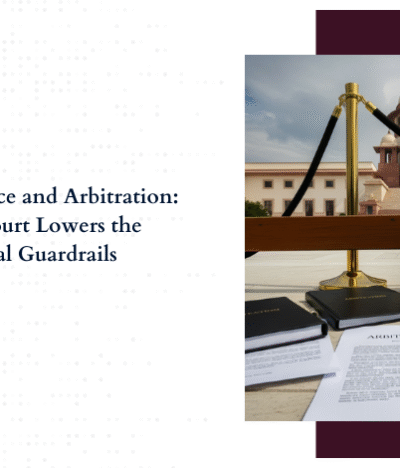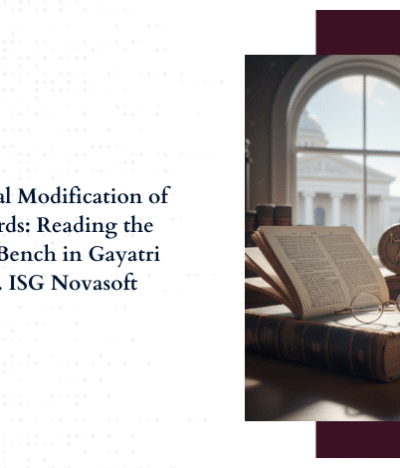How to transfer property to son after death of mother? The transfer of property to son after death of mother in India can be a complex process that requires understanding various laws and regulations. When a mother passes away, the ownership of her property must be transferred to her legal heirs, which often includes her son. This process is governed by the Indian Succession Act, 1925 and other relevant laws, depending on the religion and personal laws applicable to the deceased. The transfer can occur either through a will (testamentary succession) or without a will (intestate succession), each involving different legal procedures and documentation.
The transfer of property to son after death of mother involves several steps, including obtaining a legal heir certificate, applying for mutation of the property and ensuring all legal and procedural requirements are fulfilled to avoid any future disputes or legal challenges. Understanding these intricacies is essential to ensure a smooth transfer of property.
How to Transfer Property from Mother to Son After Death in India
The process for transfer of property to son after death of mother, can be complex and requires careful adherence to legal protocols. Whether the mother has left a will or the property is being transferred through intestate succession, knowing how to transfer property to son after death of mother is crucial to ensure a smooth and legally compliant transfer.
1. Testamentary Succession
Testamentary succession refers to the process of transferring property based on the instructions laid out in the deceased’s will. When a mother intends to transfer her property to her son, the specifics must be outlined in a duly executed will.
1.1. The Will
A will must clearly express the deceased mother’s intent to transfer her property to her son upon her death. It should detail the specifics of the property and identify all beneficiaries. The will must be signed by the mother in the presence of at least two witnesses, who must also sign to attest to its voluntary execution. While not obligatory, registering the will with the Sub-Registrar enhances its authenticity and mitigates future disputes.
1.2. Title Declaration Suit
The son (plaintiff) may initiate a title declaration suit in a civil court to assert his legal claim to the property. This requires presenting documentary evidence such as the will, title deeds and other relevant documents. The court will evaluate the evidence, including witness testimonies. If the court is satisfied with the evidence, it may issue a declaration affirming the son’s title to the property.
1.3. Probate Process (If Necessary)
In certain cities like Mumbai, Chennai and Kolkata, probate for a will is compulsory. If the property is located elsewhere, probate is required to be executed in the city where the will is being executed.. The executor named in the will must file a probate petition. The court will authenticate the will and if valid, grant probate, authorizing the executor to administer the property as per the will’s directives.
1.4. Property Mutation
Following probate, the son must apply for the property’s mutation at the local municipal or revenue office to update the ownership records.
2. Intestate Succession (Without a Will)
Intestate succession refers to the process of distributing the property of a deceased individual who did not leave a valid will. In such cases, the distribution of the deceased’s assets is governed by the rules depending on the personal laws applicable to the deceased’s religion or community.
2.1. Identifying Legal Heirs
The first step is to identify the legal heirs of the deceased mother. The legal heirs are determined based on the personal laws applicable to the deceased’s religion. The legal heirs typically include the spouse, children (both sons and daughters), parents and other close relatives as defined by the applicable personal laws.
2.2. Legal Heir Certificate or Succession Certificate
Once the legal heirs are identified, they need to obtain a legal heir certificate or succession certificate from the relevant authority. This certificate serves as proof of the legal heir’s entitlement to the deceased’s assets. The application for these certificates usually requires submitting documents such as the death certificate of the deceased, proof of relationship with the deceased (such as birth certificates) and any other relevant documents specified by the authorities.
2.3. Verification and Issuance of Certificate
The relevant authority verifies the documents submitted along with the application to establish the claim of the legal heirs. Upon satisfactory verification, the authority issues a legal heir or succession certificate. This certificate is essential for the legal heirs to claim ownership and transfer the property into their names.
2.4. Partition of Property
If the deceased mother leaves behind multiple legal heirs, the next step is to partition the property among them. The partition process involves determining the shares of each legal heir as per the applicable personal laws. For a Hindu female dying intestate, her property devolves initially to her sons, daughters, and husband. If the primary heirs are absent, the property devolves to the heirs of the husband, followed by the parents of the deceased and then to the heirs of the father, and finally, to the heirs of the mother.
2.5. Mutation of Property Titles
Once the shares of the legal heirs are determined through the partition process, the next step is to update the transfer of property titles in their names. Legal heirs must submit all relevant documents at the local municipal office to update records.
Common Challenges of Transferring Property from Mother to Son After Death
The transfer of property to son after death of mother can present several challenges that complicate the process.
Multiple Legal Heirs
In cases where there are multiple legal heirs, conflicts may arise over the share each heir is entitled to, leading to prolonged legal battles. This is especially common in joint families or when the deceased has other children (other siblings of son), a spouse or other dependents. The son should seek mediation or arbitration to amicably resolve any disputes among the heirs.
Legal Documentation
Proper legal documentation is crucial for the transfer of property. Missing documents, such as the original property documents, death certificate or proof of relationship, can hinder the transfer process. Additionally, incorrect or incomplete documentation can lead to complications. The son should gather all necessary documents in advance, ensuring all documents are complete and accurate streamlining the transfer process.
Probate Process
If the mother left a will, it may need to be probated, which is a process to validate the will. The probate process can be time-consuming and may involve court hearings, especially if the will is contested by other family members. To expedite the probate process, the son should file for probate as soon as possible and ensure all necessary documentation is submitted accurately. Engaging an experienced lawyer can help navigate the process efficiently and handle any legal challenges or contests to the will.
Property Title Issues
Title issues can arise if the property has unresolved disputes or encumbrances, such as unpaid loans or legal claims against the property. These issues can complicate the transfer and potentially delay it indefinitely. Conducting a thorough title search before initiating the transfer process is crucial.
Conclusion
The transfer of property to son after death of mother in India involves navigating a complex legal framework, whether through testamentary succession (with a will) or intestate succession (without a will). Each method has its own set of procedures and challenges. By understanding these processes and being prepared with the necessary legal documentation, the son can ensure a smoother and legally compliant transfer of property.
Ensure a Smooth Property Transfer Today
The importance of legal compliance and proper documentation in the property transfer process cannot be overstated. A correctly executed transfer not only ensures a smooth transition of ownership but also prevents future disputes. With extensive experience in handling property transfers, ACM Legal is committed to providing personalized legal solutions tailored to your needs. Our team of professionals will guide you through every step of the process, ensuring compliance and efficiency.
FAQs
1. How to transfer property from mother to son after death in India?
The transfer of property to son after death of mother in India, the son must follow these steps: If a will exists, he should get the will executed, obtain probate if required, and apply for property mutation at the local municipal office. If there is no will, he must obtain a legal heir or succession certificate, identify all legal heirs as per personal laws and then apply for property mutation.
2. How to initiate the probate process for property transfer from mother to son?
To initiate the probate process for transfer of property to son after death of mother, the executor named in the will must file a probate petition in the appropriate civil court. The petition should include the original will, the mother’s death certificate and relevant identity and property documents. The court will verify the will’s validity through witness testimonies and evidence. If the court is satisfied, it will grant probate, officially authorizing the executor to transfer the property to the son as per the will’s instructions.
3. How long does it take to transfer property from mother to son after death?
The time in transfer of property to son after death of mother can vary significantly. If a valid will exists, the probate process can take several months, depending on court proceedings and the complexity of the case. Following probate, the property mutation process at the local municipal office may take an additional few weeks. Without a will, obtaining a legal heir or succession certificate and completing the mutation process can also take several months, depending on the documentation and potential disputes among heirs. Overall, the process typically ranges from a few months to over a year.
4. Can the probate process be challenged or contested when transferring property from mother to son?
Yes, the probate process can be challenged or contested when transferring property from mother to son. Potential challengers, such as other heirs or interested parties, can contest the validity of the will on grounds like fraud, undue influence, lack of testamentary capacity or improper execution. The court will then review the objections, examine the evidence and may require witness testimonies before making a decision. If the will is found valid, the probate will be granted; otherwise, the court may invalidate the will and the property will be distributed according to intestate succession laws.
5. Can the executor or legal heir revoke the property transfer from mother to son?
No, the executor or legal heir cannot revoke the property transfer from mother to son if the transfer is based on a valid will and has been duly executed and probated. Once the court grants probate, the executor is legally bound to distribute the property according to the will’s instructions. If the property transfer is done through intestate succession, the legal heirs must follow the applicable succession laws, and any changes or disputes would need to be resolved through legal proceedings in court.






